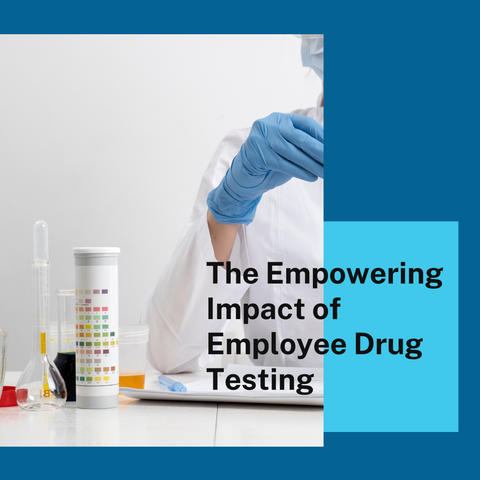
Introduction:
In today's rapidly evolving workplaces, employee drug testing has emerged as a critical practice with multifaceted benefits. Beyond its traditional role in maintaining safety and compliance, drug testing contributes significantly to the overall well-being of employees. This blog post explores the empowering impact of drug testing, highlighting how it fosters a healthier, more secure, and supportive work environment.
- Ensuring a Secure Work Environment: Employee drug testing acts as a shield, ensuring a secure work environment for every team member. By identifying and addressing substance abuse concerns early on, employers create a workplace that prioritizes the safety and well-being of everyone. This proactive approach not only safeguards individual employees but also contributes to building a collective sense of security and trust.
- Fostering a Culture of Accountability: Beyond safety, drug testing plays a pivotal role in fostering a culture of accountability. When employees know that maintaining a drug-free workplace is a shared responsibility, it promotes a sense of accountability among individuals. This culture extends beyond drug testing, influencing employees to make choices that contribute to a positive and responsible work atmosphere.
- Enhancing Individual and Collective Productivity: Employee drug testing positively impacts productivity by reducing absenteeism and presenteeism. A workplace free from the influence of drugs encourages employees to be more engaged and focused on their tasks, ultimately leading to increased individual productivity and higher overall work quality. The collective productivity of the workforce is elevated, contributing to the organization's success.
- Legal Compliance and Employee Rights: Drug testing ensures legal compliance with federal, state, and industry-specific regulations. By transparently communicating testing policies and respecting employee privacy rights, employers not only meet legal standards but also build trust and cooperation within the workplace. This adherence to legal requirements creates a fair and just working environment.
- Providing Support and Encouraging Recovery: Drug testing serves as a gateway to early intervention and support for employees facing substance abuse challenges. Employee Assistance Programs (EAPs) offer valuable resources, including counseling and recovery options. This support mechanism reinforces the notion that the organization is invested in the well-being of its employees, fostering a compassionate and caring workplace culture.
- Customizing Wellness Programs: Beyond detection, drug testing results guide the customization of wellness programs. This tailoring allows organizations to address specific needs within the workforce, promoting a holistic approach to employee health. By integrating drug testing into wellness initiatives, employers demonstrate a commitment to the comprehensive well-being of their employees.
Conclusion:
In conclusion, employee drug testing goes beyond being a compliance requirement; it is a powerful tool for creating a workplace that empowers individuals and fosters collective well-being. From ensuring a secure environment to promoting accountability, productivity, and recovery support, drug testing plays a pivotal role in shaping a positive and supportive work culture.

